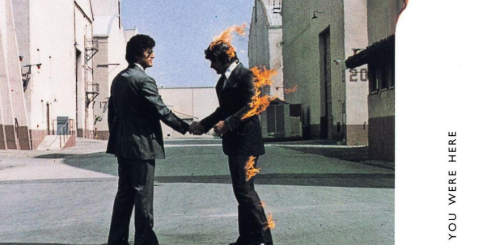The Post War Dream by Pink Floyd Lyrics Meaning – Unraveling the Echoes of a Generation
Lyrics
(Three high court judges have cleared the way)
(It was announced today, that the replacement for the Atlantic Conveyor
The container ship lost in the Falklands conflict would be built in Japan, a spokesman for)
(Moving in. They say the third world countries, like Bolivia
Which produce the drug are suffering from rising violence)
Tell me true, tell me why, was Jesus crucified
Was it for this that Daddy died?
Was it for you? Was it me?
Did I watch too much TV?
Is that a hint of accusation in your eyes?
If it wasn’t for the Nips
Being so good at building ships
The yards would still be open on the Clyde
And that can’t be much fun for them
Beneath the rising sun
With all their kids committing suicide
What have we done, Maggie, what have we done?
What have we done to England?
Should we shout, should we scream
“What happened to the post war dream?”
Oh Maggie, Maggie what did we do?
Pink Floyd’s ‘The Post War Dream,’ a track that lays the opening carpet to their 1983 album ‘The Final Cut,’ is a brooding canvas depicting the post-war disillusionment of the British psyche. Laden with historical references and societal commentaries, Roger Waters pens a reflection that resonates with the jaded echoes of a population picking up the shards of a broken dream.
Seamlessly blending music with political statement, the eerie tranquility that opens the track eventually gives way to Waters’ strained vocals, a delivery filled with the gritty realism of the era’s angst and the wistful yearning for a peace that seems compromised by the actions of leaders and the silent betrayal of collective aspirations.
Dissecting the Fallout of Failed Promises
The opening lines to ‘The Post War Dream’ echo narration of nuclear fallout shelter plans and judicial decisions, painting an England steeped in Cold War paranoia and Thatcherite economics. The dream of peace and prosperity promised after World War II feels radioactive, with hope disintegrating in the toxic atmosphere of geopolitical tension.
Beyond the literal interpretation of bricks and mortar, the fallout shelter represents a deeper existential sheltering; a need to protect from the disillusionment that comes with political skirmishes which are often antithetical to the ‘post war dream’ of stability and harmony. The song’s percussive heartbeat underscores the urgency of this realization.
Jesus, Daddy, and the TV Set: A Triptych of Betrayal
The poignancy of ‘The Post War Dream’ peels layers off personal and collective grievances. Waters asks why Jesus was crucified and juxtaposes this with the death of a father-figure, likely a reference to the fatalities of war. The questions are pointed and personal, suggesting a betrayal of sacrifice, with the television being the potential conduit of misinformation and propaganda.
The poignant interrogation forces the listener to grapple with their role in propagating or ignoring the societal issues arising from broken post-war promises. The mention of excessive TV consumption is a jab at complacency, implying a population distracted from vital truths by the opiate of mass media.
Shipbuilding and Suicide: The Tolls of Economic Despair
In a particularly visceral stanza, Waters highlights the sting of outsourcing — the replacement of the ‘Atlantic Conveyor’ to Japanese build — depicting the economic desolation that left Scots shipyards deserted. It’s a canvas of unemployment pains with global resonance: from the ‘Clydeside’ to Japan, where the pressures of achievement drive young souls to the edge.
The demise of local industries and the ripple effect it has on communities internationally is rendered with stark clarity. Pink Floyd draws attention to the dark side of global economics, where working-class struggles and mounting pressures can culminate in tragic outcomes, far removed from the prosperity promised post-conflict.
An Iconic Inquisition: What Have We Done to England?
This rhetorical plea to former Prime Minister Margaret Thatcher encapsulates the core of ‘The Post War Dream.’ It’s a stark encapsulation of the disenchantment felt by many Britons under Thatcher’s rule. Pink Floyd equates the political landscape with an almost Shakespearean tragedy—England, as a character, is seen betrayed by its stewards.
The spectral ‘post war dream’ is transfigured here; no longer a hopeful vision, but a lamenting spirit begging for recognition. The song mourns the lost chances for socioeconomic rejuvenation and questions the very sacrifices that were made during the war–sacrifices that were meant to pay for a better future.
Echoing the Nightmare: When Screams Shatter Silence
The culminating question of whether to shout or scream about the shattered ‘post war dream’ emphasizes the dilemma of the silenced majority. The use of ‘Maggie’ belies a twisted familiarity, indicating a personal sense of betrayal by not just a leader, but a neighbor, a friend, a parent.
‘The Post War Dream,’ through its poetic brevity and dense allegory, captures a conflicted zeitgeist—a nation fraught with internal battles of identity, purpose, and direction. Pink Floyd, within this intense opening testimony, sets the stage for an album that serves as a requiem for lost dreams and a siren call for the awakening of public consciousness.








